
Scotland’s rural economy is “back in business” with the Glorious 12th marking the return of the annual grouse shooting season following a difficult two years due to the pandemic.
Gamekeepers at estates across Scotland said the significance of the Glorious 12th should “not be understated” this year as many lodges and local businesses welcome locals and international tourists alike.
Ross Ewing, moorland director at Scottish Land and Estates, said August 12 – the traditional start date for the season – marks a “vital extension” to the tourism season.
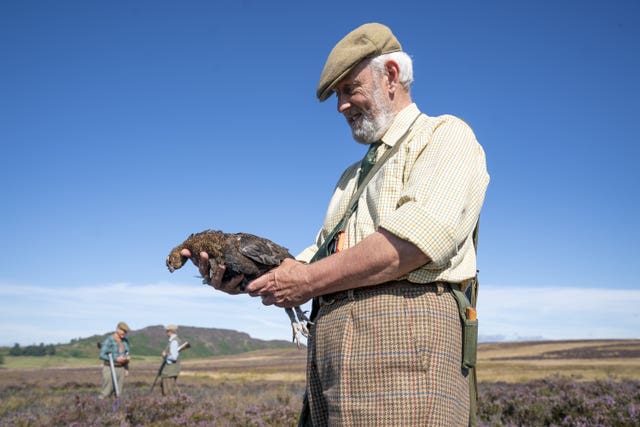
“Rural businesses need trade now more than ever, and the return of international visitors to Scotland’s iconic moorlands is an important lifeline that will enable many to weather what is set to be a difficult winter,” he said.
“The significance of the Glorious 12th this year should not be understated.
“Research has shown that grouse shooting consistently generates higher levels of local and regional spending than other comparable land uses, making it a vital cornerstone of the rural economy that sustains more jobs per hectare than other sectors.
“Improved grouse numbers and a pent-up hunger for grouse shooting from international visitors means that this year is set to be a good one – not just for those shooting, but for those rural workers and businesses that are supported by one of Scotland’s foremost rural sectors.”
Gamekeepers say they are looking forward to welcoming international tourists again following the pandemic.
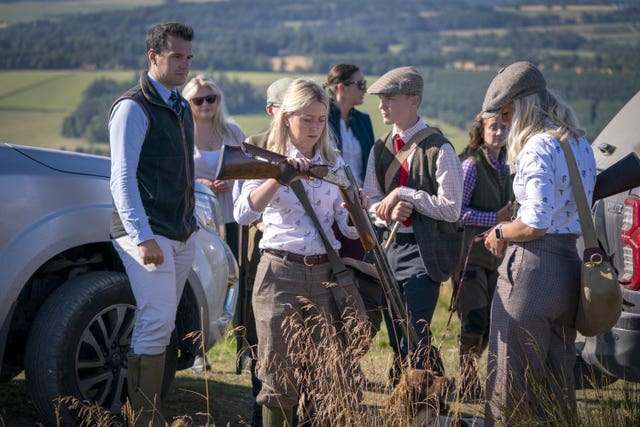
Head keeper at Forneth Farm in Perthshire, Craig Brown, said the season will give the local economy “a real boost”.
He said: “Rural communities and businesses such as hotels, pubs, restaurants and suppliers will all benefit from more people coming to Scotland.
“Most estates will be finalising their programme of shoots for the season with reports of many group bookings being made. Last year, uncertainty caused by travel restrictions and poor weather conditions had an impact and we’re delighted to see things bouncing back.”
Chloe Forbes, 27, from Perthshire, was part of one of the first shooting parties on See Far Hill at Forneth Farm.
She said: “We’re all so pleased to be back on the hill again this year and know what it means to so many people in rural communities.”
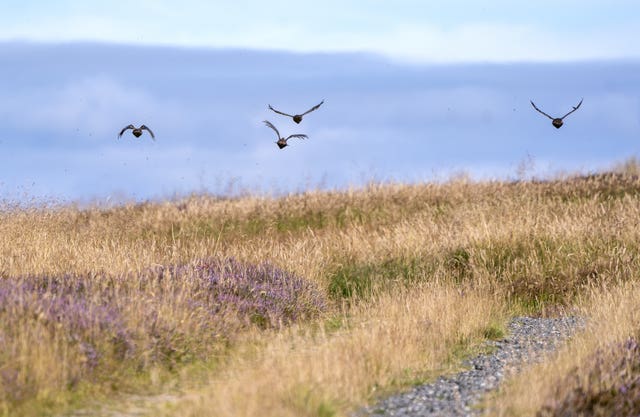
Shooting parties also took to the North Yorkshire Moors near Whitby, where country sports enthusiasts were putting gundog trainers and their dogs through their paces, pointing and retrieving grouse.
Head keeper Mark Taylor said: “It’s a massive boost for everyone in the area to see a normal shooting season get under way. It means so much to people from different walks of rural life.
“We’re looking forward to getting everybody back together again as well as the shooting parties who come from all over Europe and further afield to the moors in the north of England.”
Lucie Hustler, from the Norfolk and Suffolk field trial club, was one of the first on the moors on Friday morning with her two-year-old German short-haired pointer Oxo.
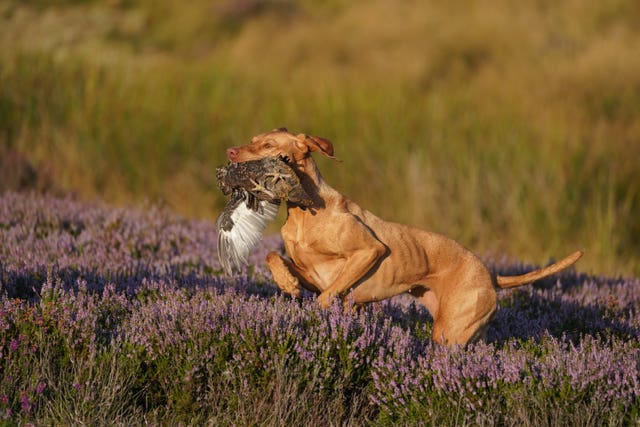
She said: ”The heather-clad North York Moors have never looked better and our dogs feel right at home here.
“We all know how important grouse shooting is and the benefits it provides for hotels and businesses, as well as making such a positive contribution to habitat and species conservation.”
Tay House, a sporting lodge in Dunkeld, Perthshire, hugely benefits from the grouse season.
It is welcoming shooting parties from home and abroad this year, including a group of 16 from America.
Three local group bookings alone this season are estimated to generate more than £210,000 for the Dunkeld economy.
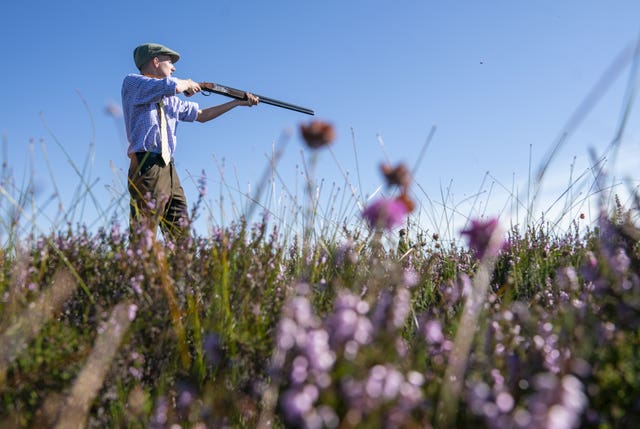
Tay House owner Mike Smith said: “Our business is built around the fishing and tourism trade throughout the spring and summer months, which is then dovetailed with the grouse and pheasant season during the autumn and winter months.
“We are reliant on rural tourism, especially the country sports sector during the off-peak season from September to December, without such we simply could not operate as a business.
“The shooting season is vitally important to so many rural business and villages such as Dunkeld. It allows for a rural way of life and generates a true community feel.”


Why are you making commenting on The National only available to subscribers?
We know there are thousands of National readers who want to debate, argue and go back and forth in the comments section of our stories. We’ve got the most informed readers in Scotland, asking each other the big questions about the future of our country.
Unfortunately, though, these important debates are being spoiled by a vocal minority of trolls who aren’t really interested in the issues, try to derail the conversations, register under fake names, and post vile abuse.
So that’s why we’ve decided to make the ability to comment only available to our paying subscribers. That way, all the trolls who post abuse on our website will have to pay if they want to join the debate – and risk a permanent ban from the account that they subscribe with.
The conversation will go back to what it should be about – people who care passionately about the issues, but disagree constructively on what we should do about them. Let’s get that debate started!
Callum Baird, Editor of The National
Comments: Our rules
We want our comments to be a lively and valuable part of our community - a place where readers can debate and engage with the most important local issues. The ability to comment on our stories is a privilege, not a right, however, and that privilege may be withdrawn if it is abused or misused.
Please report any comments that break our rules.
Read the rules hereLast Updated:
Report this comment Cancel